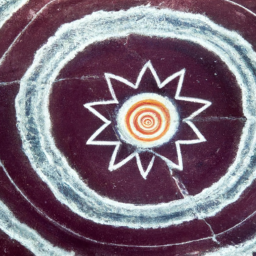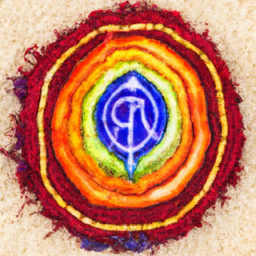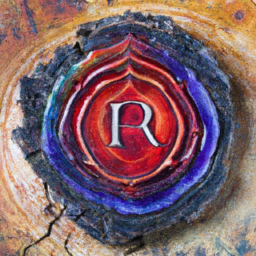Understanding the
The human body is a complex and intricate network of energy centers, known as chakras. These chakras are responsible for regulating the flow of energy throughout our body, supporting our physical, emotional, and spiritual well-being. The root chakra, or Muladhara in Sanskrit, is the first chakra located at the base of the spine. It is the foundation of our entire chakra system, responsible for our sense of security, stability, and survival. When this chakra is out of balance, it can lead to various physical, emotional, and mental symptoms. In this article, we will explore the root chakra imbalance symptoms and how to bring it back into balance.
Physical Symptoms:
- Chronic Fatigue: The root chakra is associated with our physical vitality and overall energy levels. When this chakra is imbalanced, it can manifest as a lack of energy or chronic fatigue.
- Lower back pain: The root chakra is located at the base of the spine; any blockages or imbalances in this chakra can result in lower back pain, stiffness, or discomfort.
- Digestive issues: This chakra is also related to the digestive system. An imbalance in the root chakra can cause digestive issues such as constipation, bloating, and irritable bowel syndrome (IBS).
- Weight gain or loss: A balanced root chakra helps us feel grounded and secure in our physical body. However, an imbalance in this chakra can lead to either weight gain or weight loss, depending on an individual’s body type and response to stress.
- Frequent illness: The root chakra is closely associated with our body’s immune system. When this chakra is imbalanced, it can result in a weakened immune system, leading to frequent illnesses or infections.
Emotional Symptoms:
- Anxiety and fear: The root chakra is responsible for our sense of security and stability. An imbalance in this chakra can create feelings of anxiety, fear, and restlessness.
- Insecurity and lack of confidence: An imbalance in the root chakra can also manifest as low self-esteem and lack of confidence. This can result in a constant need for external validation and a fear of failure or rejection.
- Feeling disconnected or ungrounded: The root chakra is our connection to the physical world and helps us feel grounded. When this chakra is imbalanced, we may feel disconnected from our body and surroundings, leading to feelings of spaciness and disorientation.
- Mood swings and irritability: A blocked root chakra can lead to constant mood swings, irritability, and a short temper. This imbalance can make it challenging to regulate our emotions and maintain a stable emotional state.
How to Balance the Root Chakra:
Recognizing and addressing root chakra imbalances is essential for our overall well-being. Here are some ways to balance the root chakra:
- Grounding practices: Engage in grounding practices such as walking barefoot, gardening, and spending time in nature. This helps to reconnect with the earth and create a sense of stability and security.
- Yoga and meditation: Specific yoga poses and meditation techniques can help bring the root chakra back into balance. Poses such as Tree, Mountain, and Warrior can help activate and open the root chakra.
- Aromatherapy: Essential oils such as patchouli, cedarwood, and sandalwood can help balance the root chakra. These grounding scents help create a sense of stability, security, and connection to the earth.
- Healing crystals: Certain crystals and gemstones, such as red jasper, hematite, and black tourmaline, are associated with the root chakra and can help restore balance.
- Chakra balancing therapy: Seeking help from a Reiki practitioner or other energy healers can help realign and balance the root chakra. They use various techniques such as chakra clearing, balancing, and energy healing to remove blockages and restore energy flow.
It is essential to pay attention to the root chakra imbalance symptoms and take steps to bring it back into balance. By doing so, we can improve our physical, emotional, and mental well-being, and feel more grounded, secure, and stable in our lives.
Remember, chakra balancing is a continuous process, and it requires regular maintenance and self-care practices to maintain the balance achieved. With dedication and commitment, you can keep the root chakra and all the other chakras in harmony, leading to a happy and fulfilling life.





Interesting article!
EllenWilson: I didn’t know the root chakra had physical symptoms! #knowledgeispower
Great breakdown of the root chakra imbalance symptoms – very helpful!
This is an incredibly informative post – so glad I found it!